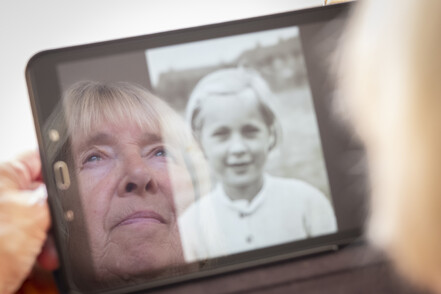Understanding Why It’s Okay (and Necessary) to Visit the Past:
A Psychodynamic Perspective for Parents and Those New to Therapy
When we hear advice like, “Just leave the past behind and focus on the present,” it can sound appealing. After all, why revisit painful or difficult memories when we want to move forward in life? However, from a psychodynamic perspective, the past is never truly gone. It stays with us, shaping our feelings, reactions, and decisions today, often in ways we may not fully realise.
In psychodynamic therapy, understanding and acknowledging the past is not only helpful but often essential for emotional healing and growth. This approach encourages a deep exploration of past experiences to understand how they influence present behaviours and emotions. For parents considering therapy for their children, or for adults new to therapy, this can feel like an important revelation.
How the Past Impacts the Present
In psychodynamic therapy, the past is viewed as a powerful force. Even experiences that we don’t consciously remember can continue to affect us today. These "unconscious" memories shape how we see the world, interact in relationships, and handle stress or conflict.
For example, a child who experienced rejection early in life may carry those feelings into adulthood, finding it difficult to trust others or form close connections. Similarly, unresolved grief, trauma, or family conflict from the past may manifest as struggles with anxiety, depression, or self-esteem in the present.
It’s important to recognise that the past shapes the lens through which we view the world today. Even if we try to ignore it or focus solely on the present, the past still plays a role in how we feel and respond to life’s challenges.
Why Visiting the Past Is Important in Therapy
When starting therapy, particularly psychodynamic therapy, the goal is not to live in the past or dwell on old memories. Instead, we visit the past to better understand how it influences our present behaviour. By reflecting on early experiences, clients (both adults and children) begin to identify patterns in their thoughts and emotions and how these patterns affect their choices today.
For example, a child struggling with anger may have unresolved feelings related to past family dynamics. Similarly, an adult experiencing anxiety may have learnt early on to suppress emotions due to childhood expectations. Exploring these past moments helps uncover the root causes of present-day issues, enabling deeper emotional healing and healthier coping strategies.
Psychodynamic therapy focuses on creating connections between the past and present, helping clients understand why they feel or act in certain ways. This understanding empowers them to make different, healthier choices for the future.
The Unconscious Mind and Why You Can’t Escape the Past
One of the central ideas in psychodynamic therapy is the concept of the unconscious mind—a part of us that holds feelings, thoughts, and memories we may not be consciously aware of. These unconscious experiences still influence us, even if we don’t actively think about them.
This is why we can’t truly escape the past. Even if we try to forget certain memories or focus only on the present, our unconscious mind continues to direct our emotions and responses in ways we might not fully understand.
For example, a parent who avoids discussing their own childhood experiences of conflict may unknowingly pass on similar behaviours or anxieties to their child. Therapy helps to bring these unconscious influences into awareness so that we can understand and address them more effectively.
Balancing the Past and Present: Remaining a Visitor
In therapy, it’s crucial to strike a balance between exploring the past and living in the present. The aim is not to dwell on old memories or become overwhelmed by them. Instead, with the guidance of a therapist, we visit the past to gather insights and better understand ourselves.
This process allows us to work through unresolved emotions without becoming stuck in them. It helps us heal, make sense of old wounds, and ultimately live more fully in the present.
Therapy as a Tool for Understanding the Past
If you or your child are considering therapy, understanding the role of the past can be an important first step. Therapy provides a safe space to explore difficult experiences and feelings, understand how they affect your life today, and learn healthier ways to manage them.
At Teenage Mental Health, our trained professionals help clients move through this process at their own pace, offering valuable insights and support along the way.
Remember, exploring the past doesn’t mean living in it. It means learning from it to consider perspectives, and create a better, more empowered present and future.

